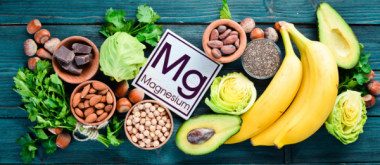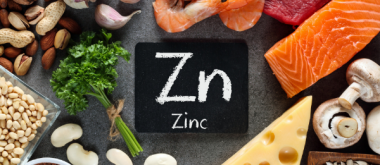Everyone suffers from inflammation at some point in their life. One of the natural ways to limit its occurrence is by adopting an anti-inflammatory diet.
Our bodies naturally respond to infection and injury through inflammation. It causes the damaged tissue to release chemicals that trigger the white blood cells to begin repairing. Chronic inflammation can be harmful to your body as it can be the origin of conditions like heart disease, stroke, cancer, arthritis, diabetes and many other chronic conditions. The choice of foods that you take can, however, have a significant impact on the inflammatory process in your body.
Types of Inflammation
There are two types of inflammation: acute and chronic.
Acute inflammation is short-term, and it can result from an injury or illness. Some of its signs are pain, redness, loss of function, swelling and heat in the affected area. The signs of this kind of inflammation might sometimes be silent, and you may feel generally unwell, tired or feverish. These symptoms that may last for a few days or months can be linked to diabetes, arthritis, psoriasis, allergies, cardiovascular disease and various other diseases.
Chronic inflammation comes with sensitivity, exposure, autoimmune disorders, autoinflammatory diseases and persistent acute inflammation. It is triggered by old age, obesity, poor diet, smoking, low testosterone, stress and sleep problems. Some of its diseases include asthma, tuberculosis, arthritis, chronic peptic ulcer, periodontitis, sinusitis, hepatitis, Crohn’s disease and some cancers.
Foods that Cause Inflammation
According to research, certain foods can cause inflammation in your body. They have been associated with a higher risk for chronic diseases such as heart disease and type 2 diabetes. These foods cause weight gain as well, which is also a risk factor behind inflammation. The foods whose components and ingredients have independent inflammation effects include:
Refined carbohydrates and added sugars such as pastries and white bread
- Red meats such as burgers, steaks, hot dogs and sausage
- Juices, sodas and other beverages with added sugars
- Salt
- Alcohol
- Margarine, lard, butter, cheese, whole milk and shortening
- Trans and saturated fats
- Fried foods such as French fries and fried chicken
Anti-Inflammation Foods
Your diet is one of the main things that trigger or subdue inflammation in your body, thus exposing disease risk. Anti-inflammatory diets have been effective in fighting inflammation in the body. They contain health-promoting polyphenols, antioxidants and various other immune-boosting compounds. If you already have diabetes, then changing your eating habits will not perform magic, but the flare-ups will lessen, and your pain will go down a few notches.
Any dietician or nutrition expert will always encourage you to consume anti-inflammatory foods. The kinds of food you eat affects the C-reactive protein (CRP) levels in your body, which is the inflammation marker. Some foods such as processed sugars can release inflammatory messages, thus raising the risk of chronic inflammation. Some other foods that are good at fighting against this oxidative stress that triggers inflammation include:
- Fruits and vegetables such as cabbages, kale, broccoli, spinach, raspberries, grapes, blackberries and cherries
- Whole grains such as corn, brown rice and oatmeal, as they are rich in fiber
- Beans, as they are rich in fiber and loaded with antioxidants
- Nuts such as almonds, as their fats are the healthy kind
- Fish such as salmon, tuna and sardines, as they are rich in omega-3s
- Herbs and spices such as garlic, turmeric, cinnamon and fenugreek, as they are rich in antioxidants
- Green tea
- Healthy fats such as avocado oil and olive oil
- Peppers such as black pepper and chili peppers
- Dark chocolate
- Red wine
7 Day Anti-Inflammatory Diet
 Monday
Monday
- Breakfast: 1 serving of blueberry-banana overnight oats and green tea.
- Lunch: 1 serving of green salad with beets and edamame.
- Dinner: 1 serving of walnut-rosemary crusted salmon, dried cherries, pepita and roasted squash.
Tuesday
- Breakfast: 1 serving of raspberry kefir power smoothie.
- Lunch: 1 serving of vegan Buddha bowl.
- Dinner: 1 serving of chickpea salad and Indian-spiced cauliflower and unsalted albacore tuna.
Wednesday
- Breakfast: 1 cup of plain Greek yogurt, 1 cup of green tea, ¼ cup of blueberries, and 1 ½ tbsp. of chopped walnuts.
- Lunch: 1 serving of cannellini bean salad.
- Dinner: 1 serving of chopped salad with salmon and creamy garlic dressing.
Thursday
- Breakfast: 1 serving of cocoa chia pudding and raspberries.
- Lunch: 1 serving of carrot, orange and avocado.
- Dinner: 1 serving of stuffed sweet potato with hummus dressing.
Friday
- Breakfast: 1 serving of raspberry kefir power smoothie.
- Lunch: 1 serving of quinoa and stir-fried veggies.
- Dinner: 1 serving of Korean steak, cauliflower rice bowl and kimchi.
Saturday
- Breakfast: 1 serving of raspberry kefir power smoothie
- Lunch: 1 serving of edamame and beets with green salad.
- Dinner: 1 serving of hummus-crusted chicken, blistered broccoli with chilis and garlic.
Sunday
- Breakfast: 1 serving of cocoa chia pudding with a turmeric latte and raspberries.
- Lunch: 1 serving of avocado egg salad sandwich.
- Dinner: 1 serving of one-pot garlicky shrimp and spinach with a cup of cooked quinoa.
Benefits of an Anti-Inflammatory Diet
Adopting an anti-inflammatory diet has many health benefits, such as reducing inflammatory markers in the blood. The diet helps improve symptoms of lupus, arthritis, inflammatory bowel syndrome and other autoimmune disorders. It reduces the risk of diabetes, obesity, heart disease, cancer, depression and other diseases. You will have better cholesterol, blood sugar and triglyceride levels and thus have improved mood and energy.
Consuming these foods regularly will ensure that you are healthy and lessen the risk of inflammation-triggered diseases. When you combine this diet with regular physical activities, stress-relieving practices and enough sleep, you will be actively working towards efficiently reducing inflammation.
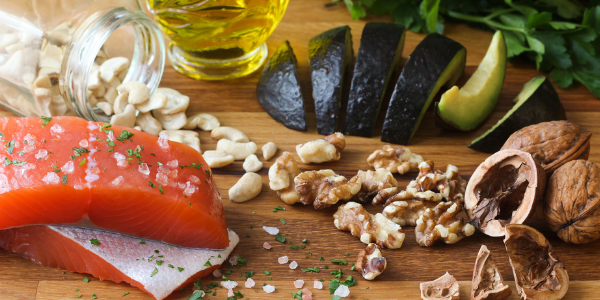
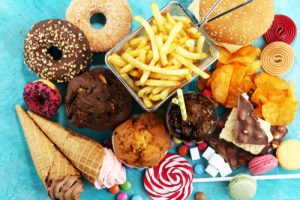 Refined carbohydrates and added sugars such as pastries and white bread
Refined carbohydrates and added sugars such as pastries and white bread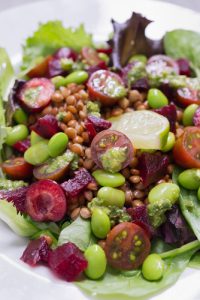 Monday
Monday